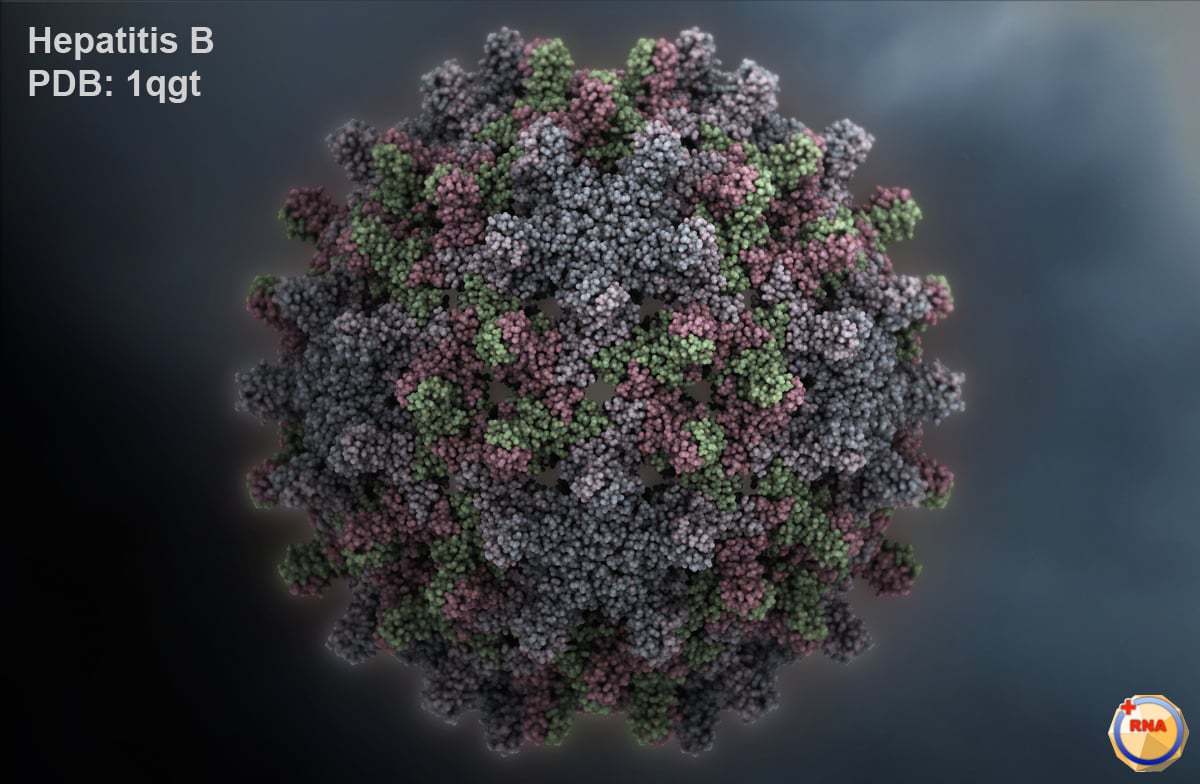预约演示
更新于:2025-06-26
GSK3965193
更新于:2025-06-26
概要
基本信息
药物类型 小分子化药 |
别名 GSK 3965193、GSK-3965193、GSK3965193 |
作用方式 抑制剂 |
作用机制 PAPD5抑制剂(terminal nucleotidyltransferase 4B inhibitors)、PAPD7抑制剂(PAPD7-PAP相关结构域7) |
在研适应症 |
非在研适应症- |
在研机构 |
非在研机构- |
权益机构- |
最高研发阶段临床1/2期 |
首次获批日期- |
最高研发阶段(中国)- |
特殊审评- |
登录后查看时间轴
关联
1
项与 GSK3965193 相关的临床试验NCT05330455
Four-part, Randomized, Double-blind (Parts 1, 2A, 3 and 4), Multi-center, Placebo-controlled Study to Assess the Safety, Tolerability, Pharmacokinetics, and Pharmacodynamics of GSK3965193 Monotherapy in Healthy Participants and in Participants Living With Chronic Hepatitis B Infection; and GSK3965193 in Combination With Bepirovirsen in Participants Living With Chronic Hepatitis B Infection
This Phase 1/2a multiple part study is a first time-in-human (FTIH) study designed to evaluate the safety, tolerability, and pharmacokinetics (PK) of single (Part 1) and repeat doses (Part 2) of GSK3965193 in healthy participants. Part 3 will evaluate the ability of GSK3965193 to lower hepatitis B virus surface antigen (HBsAg) in participants living with chronic hepatitis B infection (PLWCHB) and will be given the option to subsequently receive treatment with open label bepirovirsen. Part 4 will evaluate the safety and tolerability of combination therapy with GSK3965193 and bepirovirsen and the potential to effect sustained virologic response in PLWCHB.
开始日期2022-04-14 |
申办/合作机构 |
100 项与 GSK3965193 相关的临床结果
登录后查看更多信息
100 项与 GSK3965193 相关的转化医学
登录后查看更多信息
100 项与 GSK3965193 相关的专利(医药)
登录后查看更多信息
3
项与 GSK3965193 相关的新闻(医药)2025-02-05
Hopes for GSK3528869 appeared to be dashed in December when GSK terminated a phase 1/2 chronic hepatitis B study.\n GSK is prioritizing development of its hepatitis B treatment bepirovirsen as the pharma ends work on another potential functional cure for the infectious disease.On a media call Wednesday morning to discuss her company\'s fourth-quarter and full-year earnings, CEO Emma Walmsley said that when it came to the British pharma’s infectious disease pipeline, “we\'re prioritizing development of bepirovirsen, our potential functional cure for hepatitis B.”The pharma licensed the antisense oligonucleotide from Ionis Pharmaceuticals for $25 million upfront in 2019 and is currently aiming for an approval decision by regulators for chronic hepatitis B next year. The reemphasis on bepirovirsen came as GSK disclosed this morning that it has discontinued work on GSK3528869. The company had been holding out hopes that the candidate could be another functional cure for the infection—meaning it reduces hepatitis B virus DNA and viral proteins to undetectable levels. This stands in contrast to currently available oral antiviral therapies, which only suppress the virus.But those hopes for GSK3528869 appeared to be dashed in December when GSK terminated a phase 1/2 chronic hepatitis B study after the therapeutic vaccine regimen failed to meet the efficacy endpoint. The study tested different dose levels and sequences—and included placebo—but the idea was to prime the immune system with a viral vector encoding hepatitis B protein antigens, boost the immune system with a different vaccine and administer adjuvants to enhance the response.At the time, the pharma still had another study of GSK3528869 listed as active on the federal trial database. That study was evaluating the effect of giving vaccines to prime and boost the immune system—and adjuvants to enhance the response—after patients have received GSK’s bepirovirsen. But GSK confirmed in its earnings documents (PDF) today that it won’t be taking GSK3528869 forward.GSK isn’t the only pharma to have struggled with hepatitis B candidates in the clinic. Roche axed phase 1 and 2 trials in a recent pipeline cull, while Altimmune dropped a drug candidate after phase 2 data disappointed, and Ascletis Pharma stopped a hepatitis B program after the asset flopped in another indication.While bepirovirsen is taking priority, GSK still has a number of other assets in clinical development for chronic hepatitis B, including the hepatitis B virus-targeted siRNA GSK5637608, the PAPD5/PAPD7 inhibitor GSK3965193 and the TLR8 agonist GSK5251738. GSK also disclosed this morning that it had removed a capsid protein inhibitor for HIV called VH4004280 from its phase 2 pipeline. The company still has another HIV capsid protein inhibitor in multiple clinical trials in the form of VH3739937.The final drug to be pulled is the phase 1-stage GSK2556286, which is designed to inhibit the intracellular growth of Mycobacterium tuberculosis. The pharma has other tuberculosis candidates in the clinic in the form of the leucyl t-RNA synthetase inhibitor ganfeborole, the ethionamide booster alpibectir and the serine beta lactamase inhibitor sanfetrinem cilexetil. When it came to M&A, Walmsley told journalists on the media call that the company “continues to add new opportunities through targeted business development.” She pointed to the acquisition of Boston-based cancer-focused biotech IDRx last month as “a good example of what we want to do here.”

疫苗临床2期并购寡核苷酸siRNA
2022-10-02
·药时代
点击这里,与几百位朋友们欢聚CMC高峰论坛!编者按:近几个月Hepatitis B Foundation网站乙肝新药表单未见更新,为帮助大家更准确地获取全球乙肝新药最前沿信息,肝霖君查询各大药企官网更新的产品管线信息和相关网络资料中的乙肝新药报道做了系统地整理,并汇总了慢乙肝新药与新药联合、新药与现有药物联合治疗的临床研究进展。本期表单更新有:新增处于临床I期的单克隆抗体162。新增处于临床前阶段的单克隆抗体N6HB426-20,衣壳抑制剂BA-53038B、HEC72702和SHR5133,双特异性抗体UM06。PAPD5/7抑制剂GSK3965193进入I/II期临床,衣壳抑制剂LW-231进入I期临床,小分子DF-006进入I期临床。新药联合治疗的探索明显加速,包括新药与新药联合、新药与现有药物的联合。许多新药单药在I期或II期研究中未达到主要疗效目标,企业便积极开始了不同联合治疗方案的探索。这也将是未来乙肝全面临床治愈的必要策略。新药相关联合用药临床研究汇总部分新药进展01N6HB426-20N6HB426-20是日本理化研究所研发的一款NTCP靶向单克隆抗体,可抑制HBV进入肝细胞,目前处于临床前研究阶段。02LW-231上海长森药业开发的小分子衣壳抑制剂LW-231于2022年3月1日首次获批临床,目前I期临床已经启动(CTR20221609),旨在评价LW-231片在健康受试者、慢性乙型肝炎患者中的耐受性、药代动力学及药效学。03BA-53038BBA-53038B是由Baruch S. Blumberg Institute开发的一款衣壳抑制剂,属于新型苯甲酰胺衍生物,目前处于临床前研究阶段。04HEC72702HEC72702是由东阳光药业开发的一款衣壳抑制剂,目前处于临床前研究阶段。相关手性研究显示,( R, R )-HEC72702对乙型肝炎病毒衣壳的抑制效力高于( R, S )-HEC72702。05SHR5133SHR5133是恒瑞医药开发的一款衣壳抑制剂,目前处于临床前研究阶段。06162162是养生堂开发的一款用于治疗慢性乙型肝炎的HBsAg中和抗体,目前I期临床(NCT05310487)正在招募当中,该项随机双盲、安慰剂对照试验旨在评估健康成人受试者接受单次递增剂量给药后的安全性、耐受性及药代动力学。07GSK3965193葛兰素史克研发的非典型poly(A)聚合酶5和7(PAPD5/7)小分子抑制剂GSK3965193进入I/II期临床(NCT05330455),该项首次人体研究分为4部分,第1、2部分旨在评估单剂量和多剂量GSK3965193在健康受试者中的安全性、耐受性和药代动力学,第3部分旨在评估GSK3965193降低慢乙肝患者HBsAg的能力,第4部分旨在评估 GSK3965193联合葛兰素史克另一反义寡核苷酸药物GSK3228836对慢乙肝患者的安全性、耐受性及疗效,目前正在招募中。08DF-006药物牧场研发的ALPK1激动剂DF-006进入I期临床(ACTRN12621000592842),该项随机双盲、安慰剂对照的首次人体研究旨在评估健康受试者口服单剂量和多剂量DF-006后的安全性、耐受性和药代动力学。09UM06UM06是优迈生物开发的一款双特异性抗体,目前处于临床前研究阶段。2020年12月15日,优迈生物与天境生物(杭州)签约,双方将合作进行UM06在抗肿瘤和慢乙肝治疗方面的研发。10TQA3334 + ETV ± TQB2450TQA3334和TQB2450分别是由正大天晴药业开发的TLR7激动剂和全人源化抗PD-L1单克隆抗体,一项单中心、随机、前瞻性、开放标签II期研究(NCT04202653)旨在评估TQA3334 + ETV ± TQB2450联合疗法相比ETV单药治疗慢乙肝的疗效和安全性,目前暂未启动招募。注:部分信息参考小番健康、肝脏时间。原文题目:【新药进展】全球乙肝新药进展(更新至2022年9月,独家整理)封面图来源:123rf版权声明/免责声明本文为授权转载文章,版权归拥有者。仅供感兴趣的个人谨慎参考,非商用,非医用、非投资用。欢迎朋友们批评指正!衷心感谢!文中图片、视频为授权正版作品,或来自微信公共图片库,或取自公司官网/网络根据CC0协议使用,版权归拥有者。任何问题,请与我们联系(电话:13651980212。微信:27674131。邮箱:contact@drugtimes.cn)。衷心感谢!推荐阅读成功药早,时代要好!药时代敬祝广大朋友们节日快乐!请欣赏优美歌曲和文章!~~健艾仕生物STAT5抑制剂在新冠肺炎引起的炎症因子风暴的临床试验进展顺利卢煜明因无创检测获拉斯克奖,距离诺奖还远吗?卡脖子 or 被卡脖子?生物制药产业供应链「国产替代」,已经需要争分夺秒!三款重磅PARP遇挫,FDA再「出手」,NMPA「如何面对」?刷新OS数据!H药登上JAMA主刊,PD-1治疗小细胞肺癌重大突破!药企的安得广厦千万间肿瘤药全部扑街!FDA两天开了4场专家咨询委员会,竟然只有一款「粪便疗法」通过了...中国制药江湖「神曲」!~~ 继《PD-1之歌》之后,药时代拟推出《双抗之歌》 | 附:30+篇双抗主题好文章行业再现【淘金者】:我就再赌最后一把!三院士齐聚!以临床价值为导向,打造生物医药源头创新机制 | 上海源创新药高峰论坛圆满落幕!阿尔茨海默病,可能是我们老去后的结局……RSV领域时隔60年起风云!阿斯利康/赛诺菲,一剂绝尘!罗永庆离开腾盛博药加盟云顶新耀,中国药企挖人大战进入白热化。这是行业成熟的标志吗?请投票!点击这里,报名参加第三届中国新药CMC高峰论坛!
抗体免疫疗法小分子药物创新药合作
2022-07-03
·药时代
寻找「制药界董宇辉」!为中国创新代言,为优秀公司带货!药时代直播招聘啦!编者按:6月Hepatitis B Foundation网站乙肝新药表单更新迟滞,为帮助大家更准确地获取全球乙肝新药最前沿信息,肝霖君查询各大药企官网更新的产品管线信息和相关网络资料以及EASL2022大会摘要中的乙肝新药报道做了系统地整理,并汇总了慢乙肝新药与新药联合、新药与现有药物联合治疗的临床研究进展。本期表单更新有:新增处于临床I期的进入抑制剂HH-006、衣壳抑制剂RO7049389、HEC121120,新增处于临床前阶段的衣壳抑制剂AMS-I-1274、ATI-1428、ATI-1645、TCR双特异性抗体以及FXR激动剂HEC96719。新药联合治疗的探索明显加速,包括新药与新药联合、新药与现有药物的联合。许多新药单药在I期或II期研究中未达到主要疗效目标,企业便积极开始了不同联合治疗方案的探索。这也将是未来乙肝全面临床治愈的必要策略。新药相关联合用药临床研究汇总部分新药进展01HH-006HH-006是华辉安健(北京)生物科技有限公司开发的皮下注射抗HBV/HDV候选药物,与HH-003具有相同的作用靶点。HH-006可直接阻断乙肝病毒与牛磺胆酸钠共转运多肽(NTCP)受体的结合,抑制乙肝病毒进入肝细胞。目前,HH-006已在澳大利亚启动I期临床,并已完成首例受试者给药。该项随机、双盲、安慰剂对照试验旨在评估HH-006在健康志愿者中的安全性、耐受性和药代动力学特征。02RO7049389RO7049389是罗氏公司开发的一种核心蛋白变构调节剂(CpAM),I期临床数据显示 RO7049389 + PEG IFNα + NA 能显著抑制慢乙肝患者的病毒活性,有效降低初治患者的HBsAg水平,对于基因型C型患者也有很好的治疗效果(相关链接)。03HEC121120HEC121120是广东东阳光药业开发的一款小分子核衣壳抑制剂,目前I期临床正在进行中(登记号:CTR20201605)。临床前研究显示在体外细胞实验和体内小鼠模型中均能有效抑制HBsAg、HBeAg以及HBV DNA水平。04AMS-I-1274AMS-I-1274是AM Sciences通过高通量筛选发现的一种新型II类口服活性衣壳组装调节剂,目前处于临床前研究阶段。AMS-I-1274能有效抑制病毒复制,在HBV感染PBX小鼠模型中,每天两次口服50 mg/kg AMS-I-1274治疗42天可使血清HBV DNA水平降低3.49 log10。在啮齿动物和非人类灵长类动物中的PK研究显示良好的全身暴露量和高口服生物利用度。05ATI-1428和ATI-1645ATI-1428和ATI-1645属于第四代II类衣壳组装调节剂(CAM),由Antios Therapeutics公司2021年11月从San Raffaele Hospital (OSR)、Istituto Nazionale Genetica Molecolare (INGM) 和 IRBM/Promidis收购获得,目前均处于临床前研究阶段。ATI-1428和ATI-1645源自一种新型化学骨架,在HBV感染小鼠模型中可防止空衣壳的异常堆积和相关T细胞介导的肝损伤。06TCR双特异性抗体Lion TCR公司公布了一款靶向HBV的TCR双特异性抗体,开发用于治疗慢性乙型肝炎,目前处于临床前阶段。07HEC96719广东东阳光药业有限公司自主研发的FXR激动剂HEC96719之前正在开发用于非酒精性脂肪性肝炎(II期),在2022年欧肝会上,研究人员首次公布了HEC96719针对乙肝病毒的临床前研究数据:HEC96719在HBV感染的PHH模型中具有显著的抗病毒活性,其对HBV DNA、HBeAg、HBsAg和HBV RNA 的平均EC50值分别为< 0.001 μM、0.001 μM、0.003 μM和< 0.001 μM;在AAV/HBV小鼠模型中,HEC96719呈剂量依赖性地降低HBV相关疗效指标,治疗56天后0.5 mg/kg剂量组血清HBV DNA、HBeAg、HBsAg平均降幅分别为0.51 log、0.30 log、0.26 log,而2 mg/kg剂量组分别为1.34 log、0.50 log、0.61 log。08GSK3228836+GSK3965193Bepirovirsen(GSK3228836, GSK836)是葛兰素史克研发的一种反义寡核苷酸药物,GSK3965193是葛兰素史克研发的一种非典型poly (A) 聚合酶5和7(PAPD5/7)的小分子抑制剂。2022欧肝摘要公布了一项在AAV-HBV 小鼠模型中联用GSK3965193和GSK3228836的临床前研究结果,显示GSK3965193单药治疗28天可使HBsAg水平降低高达1 log,GSK3228836单药治疗21天可使HBsAg水平降低高达2 log,两者联用超过28天可使HBsAg水平降低高达3 log。GSK3228836的IIb期临床研究B-clear在欧肝会上公布了中期结果,对于初治患者和核苷经治患者,采用GSK3228836 300 mg/周一次(第4天和第11天使用负荷剂量)治疗24周达到HBsAg清除且HBV DNA阴性的比例分别为29%和28%,但从2-4组的结果上可发现,若GSK3228836减量或停药,已经发生HBsAg清除的患者会逐步发生HBsAg复阳,因此其持久性有待继续考察。另外,GSK还开发了PK/PD模型以为III期研究做决策。本次会议暂未披露GSK3228836与聚乙二醇干扰素α联合治疗的II期临床结果。注:部分信息参考小番健康、肝脏时间。版权声明/免责声明本文为授权转载文章,版权归拥有者。仅供感兴趣的个人谨慎参考,非商用,非医用、非投资用。欢迎朋友们批评指正!衷心感谢!文中图片、视频为授权正版作品,或来自微信公共图片库,或取自公司官网/网络根据CC0协议使用,版权归拥有者。任何问题,请与我们联系(电话:13651980212。微信:27674131。邮箱:contact@drugtimes.cn)。衷心感谢!推荐阅读“大糖盛世”下我国糖尿病市场的机遇与挑战勃林格殷格翰生物制药完成“智能工厂”一期工程 “云看厂”服务开放诺华的裁员计划出来了,3年将裁撤8千人!——跨国药企的远虑与近忧后新冠疫情时代成功开发抗肿瘤药物的四大战略学术报告+晚间沙龙,7月2日第八届百奥赛图海门会议(云端)全日程公布!1.61亿美元,中国药企海外并购!百济神州泽布替尼全球50个市场获批。亚盛、信达、先声、泛生子等也喜讯频传 | 药时代出海系列又一临床试验被FDA叫停!明星公司Sarepta的DMD新疗法开发遭遇挫折近2年,FDA撤销了17项「突破性疗法认定」。这张票,似乎没有想象中“值钱”「用简单的创意改变世界」Horizon、Evofem和雅培获得2022年戛纳制药之狮奖「疫苗之王」争夺战再起!默沙东的数据出炉,辉瑞要头痛了吗?世贸组织豁免新冠疫苗专利,但更迫切的需求在于如何分配疫苗上市1年内,就有244位患者用药后死亡...这药也能站上FDA专家咨询委员会?点击这里,欢聚药时代!
小分子药物寡核苷酸免疫疗法抗体并购疫苗突破性疗法
100 项与 GSK3965193 相关的药物交易
登录后查看更多信息
研发状态
临床结果
临床结果
适应症
分期
评价
查看全部结果
| 研究 | 分期 | 人群特征 | 评价人数 | 分组 | 结果 | 评价 | 发布日期 |
|---|
No Data | |||||||
登录后查看更多信息
转化医学
使用我们的转化医学数据加速您的研究。
登录
或

药物交易
使用我们的药物交易数据加速您的研究。
登录
或

核心专利
使用我们的核心专利数据促进您的研究。
登录
或

临床分析
紧跟全球注册中心的最新临床试验。
登录
或

批准
利用最新的监管批准信息加速您的研究。
登录
或

特殊审评
只需点击几下即可了解关键药物信息。
登录
或

Eureka LS:
全新生物医药AI Agent 覆盖科研全链路,让突破性发现快人一步
立即开始免费试用!
智慧芽新药情报库是智慧芽专为生命科学人士构建的基于AI的创新药情报平台,助您全方位提升您的研发与决策效率。
立即开始数据试用!
智慧芽新药库数据也通过智慧芽数据服务平台,以API或者数据包形式对外开放,助您更加充分利用智慧芽新药情报信息。
生物序列数据库
生物药研发创新
免费使用
化学结构数据库
小分子化药研发创新
免费使用

